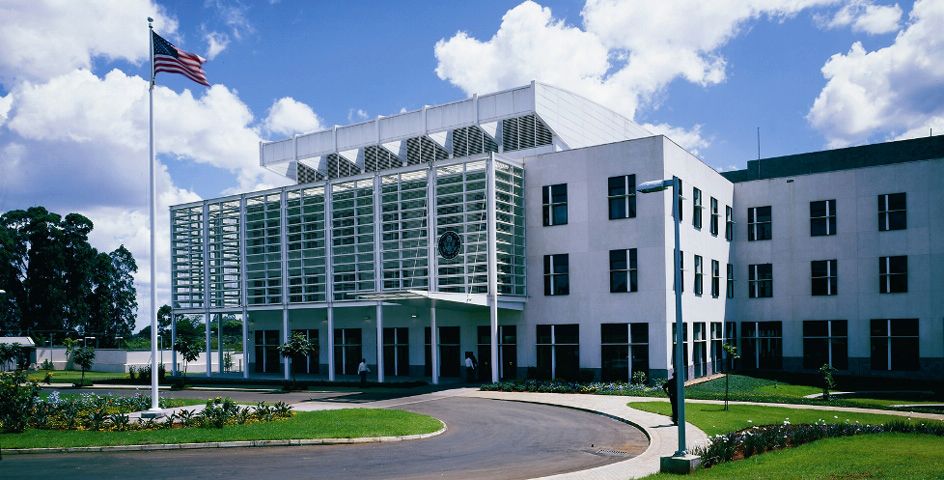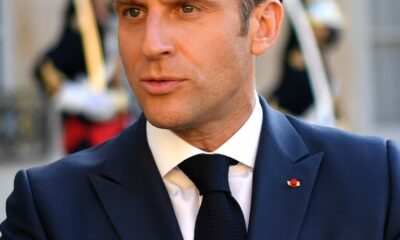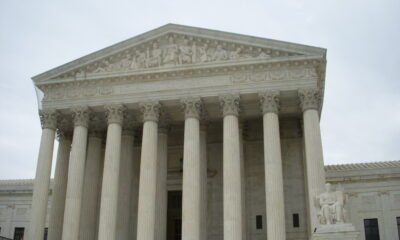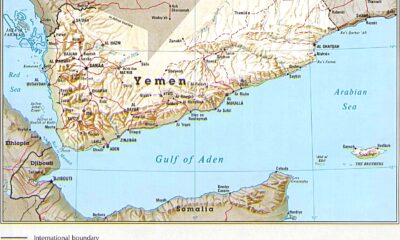Civilization
Kenya and the African Continent Need Greater U.S. Attention
Kenya is warming to America again, after the Chinese Belt and Road Initiative left a sour taste – but America must be more attentive.

Africa has never truly been a strategic geopolitical focus for the United States. Despite the continent’s population of 1.4 billion people, which is predicted to double by 2050, and having some of the fastest-growing economies in the world, the U.S. government has remarkably few reliable allies on the continent and risks losing even more of its standing to global adversaries Russia and China.
Russia and China make inroads
For example, a $1 billion investment in Niger was dealt a massive blow when the military government earlier this spring switched its allegiance to Russia and informed the Pentagon that U.S. military personnel engaged in counterterrorism efforts against ISIS and Al Qaeda franchises were no longer welcome. Russian troops are already in the country, sharing the use of a base with departing American service members.
China is an even more formidable challenge. The Middle Kingdom has successfully deployed several strategies in Africa to pursue its geopolitical interests. According to Heritage Foundation scholar Michael Pillsbury, it has a history of supporting autocracies on the continent, leverages strategic lending and investment, and “forms beneficial arrangements” with governments on the continent based on the principle of non-interference. China has even gifted infrastructure projects such as modern state houses or parliament buildings, as it did in Zimbabwe a few years ago. Moreover, Beijing has built a media propaganda system using channels such as China Global Television Network (CGTN) in a bid to disseminate favorable perceptions about the country to an African audience while diminishing those of the United States. One of CGTN’s three global production centers is based in the Kenyan capital of Nairobi.
Kenya and its long-standing relationship with America
Kenya is one of the few countries that enjoys a long-standing relationship with the United States. Rightly seen as a bastion of democracy on a continent with a patchy record of democratic rule, Nairobi hosts the largest U.S. embassy in Africa and the U.S. military operates several bases in the country from which it conducts counterterrorism operations in Somalia and further afield. During a state visit to Washington last May by President William Ruto, President Joe Biden even announced that Kenya had been designated the first major non-NATO ally in Sub-Saharan Africa.
Apart from having security interests in Africa, the United States must consider building better economic ties with African partners and providing more effective development assistance. Historically, American trade with Africa generally, and Kenya specifically, amounted to only a fraction of what China trades on the continent. Moreover, China had been admired across the African continent for its lending practices that peaked somewhere around 2016 before dropping precipitously and being replaced by loans from the International Monetary Fund and World Bank.
Kenya turns away from China
In comparison, prior U.S. development assistance overly targeted sectors such as education, health, or good governance which require a long-term horizon and are thus less noticed by the public. While Kenya ranked amongst the top 10 recipients of nonemergency State Department and USAID-managed aid in 2023, it was Chinese-built roads and expressways that garnered great admiration amongst the Kenyan population and further assisted in cementing China’s reputation as a benevolent actor. Beijing’s star has faded somewhat on the continent, however, due in part to the widespread dissemination of videos showing Chinese bosses mistreating locals and reports of illegal mineral extraction.
With the election of President Ruto in August 2022, Kenya turned away from its previous eastward-looking policy. Ruto increasingly sought a stronger relationship with the United States, and he was ultimately rewarded with the visit to mark 60 years of the U.S.-Kenya partnership. He was keen to position himself on the international stage as the African leader of choice, even sending 1,000 Kenyan police officers to the U.S.-financed mission to Haiti.
A misstep
While Ruto was in Washington, Microsoft, together with UAE-based AI firm G42, signed a letter of intent with Kenya’s Ministry of Information, Communications, and the Digital Economy, for a comprehensive package of digital investments worth $1 billion, including the construction of a state-of-the-art green data center to run Microsoft Azure in a new East Africa Cloud Region. The deal was lauded for furthering the U.S.’ economic goals but has since come under scrutiny by Washington officials because of G42’s lengthy history with China.
Embracing Ruto so willingly, however, may have inadvertently backfired. Ruto’s standing in his own country was viewed to be dramatically weakened by youth-led, and ultimately lethal protests that erupted across Kenya upon his return home — and linger to this day. Ironically, the state visit may have been a trigger for the current unrest, as some Kenyan media reports portrayed him to be a lackey of the American government.
By misjudging the overall public mood, Ruto’s trip ignited the ire of particularly the Generation Z and Millennial demographic segments which comprise most of Kenya’s population. Unimpressed with investment announcements in Washington, the protestors took umbrage with the higher taxes they were about to face by a now-withdrawn 2024 finance bill. The youth were also outraged by calls for belt-tightening while the political elite was seemingly enriching themselves through corruption, which Ruto’s predecessor in 2021 had claimed was costing the country around $17 million per day.
America should pay greater attention
The government-led crackdown against the protesters has tragically led to an estimated 60 people dead at the hands of the security forces. The media have also been officially warned about covering the protests responsibly so that the country “does not go in the wrong direction,” according to Ruto. In a call between Secretary of State Anthony Blinken and President Ruto on 25 July, the former “underscored the importance of freedoms of assembly and expression as enshrined in Kenya’s constitution,” amongst others.
It remains vital that Washington address human rights and good governance, something Beijing studiously overlooks. However, America needs to up its game with greater support in strengthening Kenya’s manufacturing sector, as well as the digital economy, from which Kenya’s GenZ and Millennials are well positioned to benefit, given their technological savviness. Both will serve to create jobs and a middle class that embraces democratic values.
In the near term, the current U.S. administration and the next one, whether Democrat or Republican, will have to delicately navigate its partnership with Kenya in a bid to not alienate a key African security partner and weaken the region’s institutional infrastructure. Succeeding in this diplomatic balancing act will signal to Kenya and other African governments that Washington is indeed a reliable and relevant partner in the decades ahead, whereas additional missteps will only further diminish American influence.
This article was originally published by RealClearWorld and made available via RealClearWire.
-

 Accountability2 days ago
Accountability2 days agoWaste of the Day: Principal Bought Lobster with School Funds
-

 Constitution2 days ago
Constitution2 days agoTrump, Canada, and the Constitutional Problem Beneath the Bridge
-

 Executive24 hours ago
Executive24 hours agoHow Relaxed COVID-Era Rules Fueled Minnesota’s Biggest Scam
-

 Civilization23 hours ago
Civilization23 hours agoThe End of Purple States and Competitive Districts
-

 Civilization5 days ago
Civilization5 days agoThe devil is in the details
-

 Civilization4 days ago
Civilization4 days agoThe Conundrum of President Donald J. Trump
-

 Executive4 days ago
Executive4 days agoTwo New Books Bash Covid Failures
-

 Executive4 days ago
Executive4 days agoThe Israeli Lesson Democrats Ignore at Their Peril













